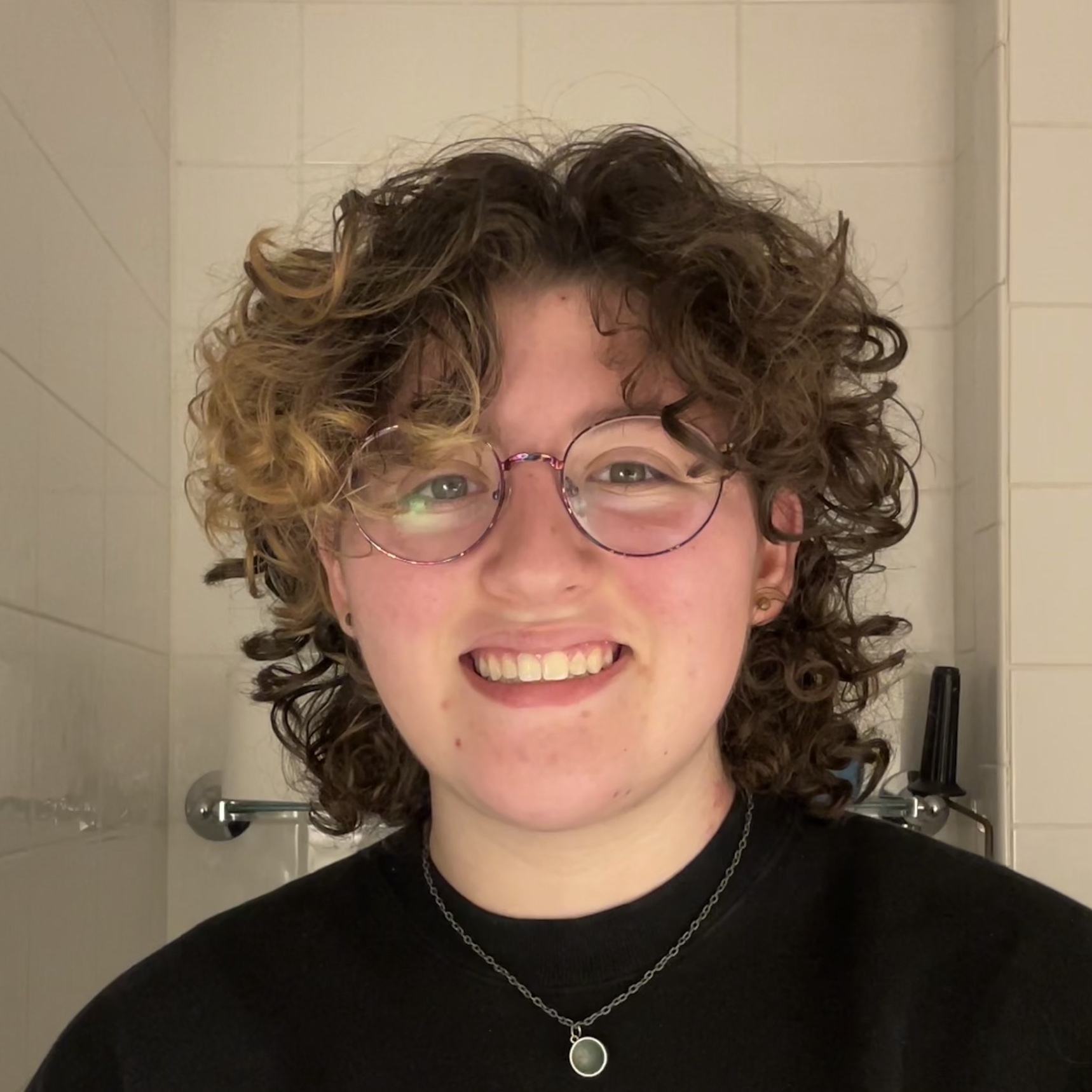Greenstein Fund: The Jewish Youth Climate Movement
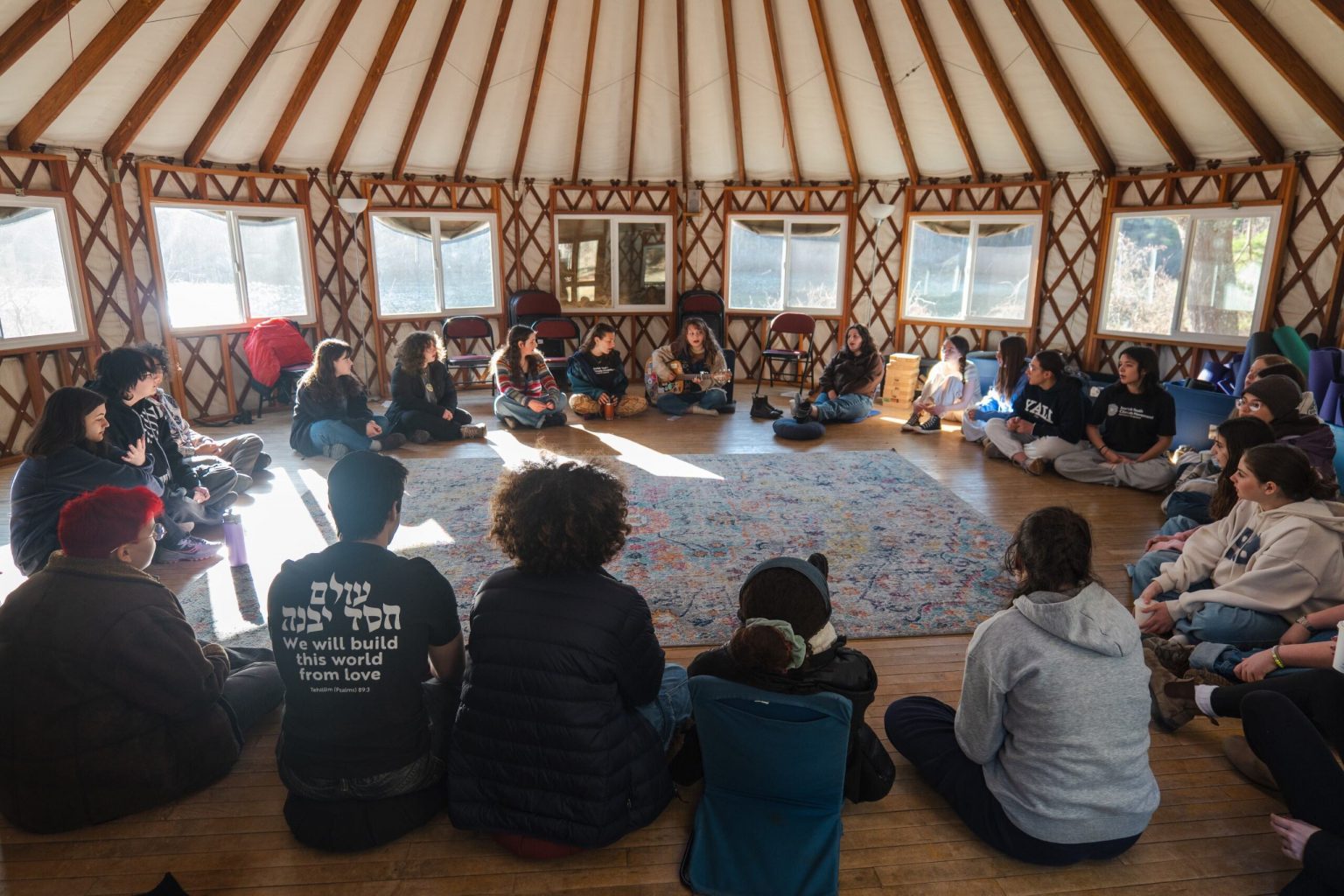 Editor’s note: Shayna Rudoren participated in the JYCM retreat. Her participation was funded by a grant from Shomrei’s Zelda & Rabbi David Greenstein Fund for Social Justice. (more info about the fund)
Editor’s note: Shayna Rudoren participated in the JYCM retreat. Her participation was funded by a grant from Shomrei’s Zelda & Rabbi David Greenstein Fund for Social Justice. (more info about the fund)
—
On March 21st, I participated in the Jewish Youth Climate Movement’s (JYCM) Education and Action Retreat, held at Isabella Freedman, a Jewish retreat center in Connecticut (which is home to a large sustainable farm). I had heard about this opportunity from a friend and was excited, but I didn’t know what to expect.
The Jewish Youth Climate Movement is a “Gen Z-led movement dedicated to combating climate change and environmental injustice from a Jewish lens.” I was interested in all of these details, and I felt that the retreat I attended truly embodied them. The way I see it, there were 3 central focuses of the retreat:
1. Community is Necessary in Action Work
The retreat was structured around our sharing of Shabbat. We sang, we talked, we hiked, we learned, and we sang a little more. All of these activities build strong networks that are based on more than only the causes we care about, meaning that they will last longer. The current JYCM campaign, for example, is related to fossil fuel insurance (more on that later). If everyone who supported their campaign were only bound together with a care specifically for halting the insuring of fossil fuel pipelines, there would be no momentum to make impactful change. There are too many problems with our environment for groups to form on single sections of the issues. 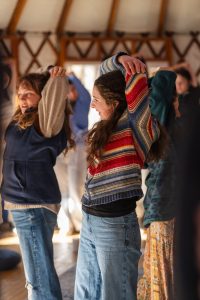
Yes, the JYCM community is formed around a broad care for the environment, but it is also, importantly, formed through Jewish connection. When focusing an event around our shared Judaism rather than only our shared political passions, it can become more difficult to form a community. There was a broad range of practices represented, some going to Orthodox Jewish Day School, and some seeing JYCM as their primary Jewish community, all of which are needed for organizations like JYCM to prosper. This brings up the very rewarding struggle of pluralism. Pluralism, in a Jewish context and beyond, is also necessary in action work. In many ways, the goal of action work is mass; the more people who are able to support a movement, the more attention it gets. This involves building bridges and finding connections/compromises beyond our shared ideas. (essentially moving towards our differences instead of ignoring them). At the retreat, this looked like participant leadership and the inclusion of different ways to observe Shabbat: an alternative service, a hike, meditation, being in nature (tree hugging), etc.
2. Showing us the Work in Action (Being at Isabella Freedman)
One of the activities that we participated in was a tour of the sustainable farm that Isabella Freedman tends to. Through the weekend, we ate food that had been harvested from the farm, carefully emptying leftover food into the compost bins – to see the compost pile, to see the greenhouse, and to learn about the processes in which our food was made was a special experience. Personally, I felt a deeper connection with nature after seeing the farm.
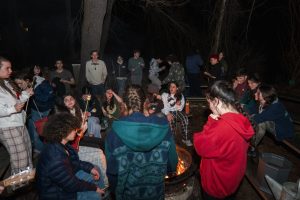 Environmental work can often feel hopeless, can feel depressing, and can feel never-ending. Seeing an organization in action – and succeeding (In 2024, the Adamah Farm delivered over $16,000 worth of freshly harvested organic produce to hunger relief organizations that otherwise would not have been able to offer fresh food) – is very uplifting.
Environmental work can often feel hopeless, can feel depressing, and can feel never-ending. Seeing an organization in action – and succeeding (In 2024, the Adamah Farm delivered over $16,000 worth of freshly harvested organic produce to hunger relief organizations that otherwise would not have been able to offer fresh food) – is very uplifting.
Isabella Freedman, in particular, is a Jewish organization, they do their work through a Jewish lens, like JYCM (they have the same parent organization, Adamah); this component of lens helps bridge the gap of the work feeling daunting. When the foundation of the work is in Jewish law or values, I think it can be easier for the work to feel doable, as we, the Jewish community, already have a framework to think from. At the retreat, the location of Isabella Freedman provided us with this framework.
3. JYCM’s Current Campaign
After all of the community building and experiential learning, there still had to be some action-taking (JYCM is an advocacy organization after all). On Sunday morning, we were introduced to the new campaign they have started called Underwrite Earth. The campaign focuses on the insurance companies that insure fossil fuel pipelines, in addition to the homes/cars they insure (Liberty Mutual is one of the targets in the campaign). This means that everyday people could be insured through the same system as organizations that are doing serious harm to our environment, making them non-consensually complicit (I don’t know if this makes you upset, but it makes me upset). If fossil fuel pipelines are not insured, they are not able to function – this campaign is working from the root of the problem.
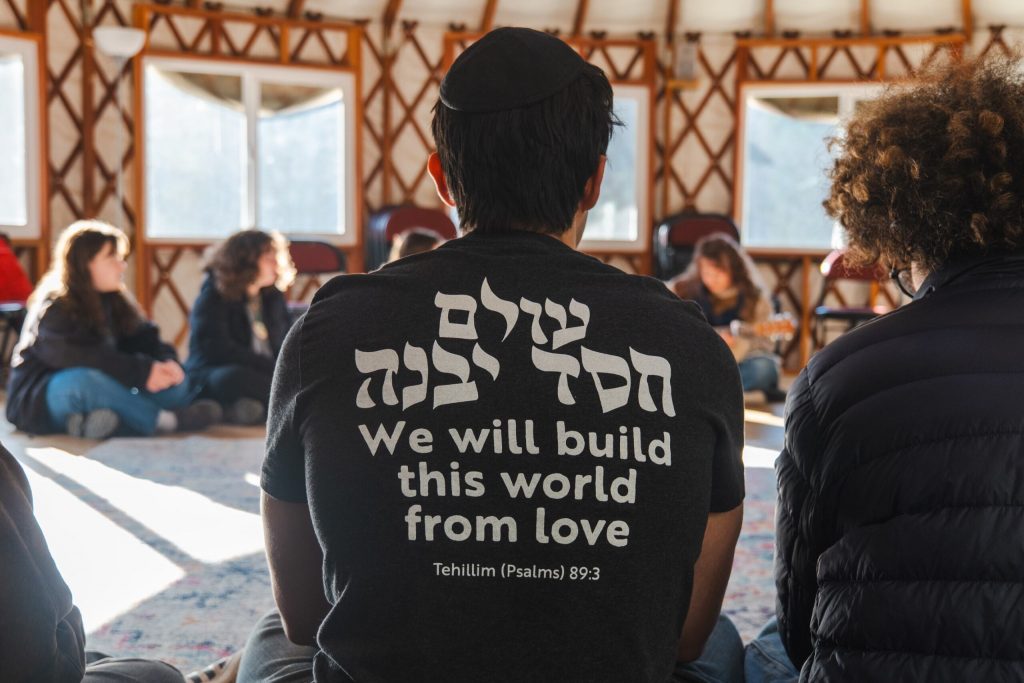 At the retreat, we learned about the campaign – from the teenagers who created it – and also learned about how they came up with the idea/plan, looking for something unique, something specific, and something that would make a real impact. The campaign focuses on the particularistic: the effects of climate change and wildfires on Jewish organizations; and the universalist: centering the way that the existence of fossil fuel pipelines negatively affects our “collective future.” The retreat ended with an introduction to the postcard writing element of the campaign, which I hope to bring to the Shomrei-teen community soon.
At the retreat, we learned about the campaign – from the teenagers who created it – and also learned about how they came up with the idea/plan, looking for something unique, something specific, and something that would make a real impact. The campaign focuses on the particularistic: the effects of climate change and wildfires on Jewish organizations; and the universalist: centering the way that the existence of fossil fuel pipelines negatively affects our “collective future.” The retreat ended with an introduction to the postcard writing element of the campaign, which I hope to bring to the Shomrei-teen community soon.
Thank you so much to the Greenstein Fund for sponsoring my participation in the retreat. It was truly a meaningful experience, connecting me with peers, and learning about how to make change in the entire world through a Jewish lens – what Tikkun Olam should look like.

